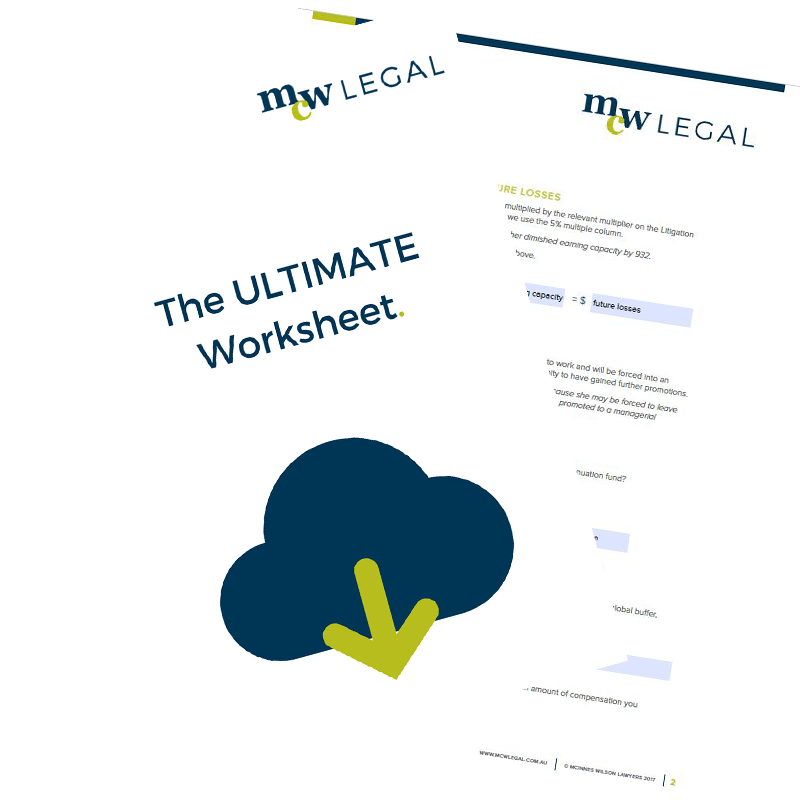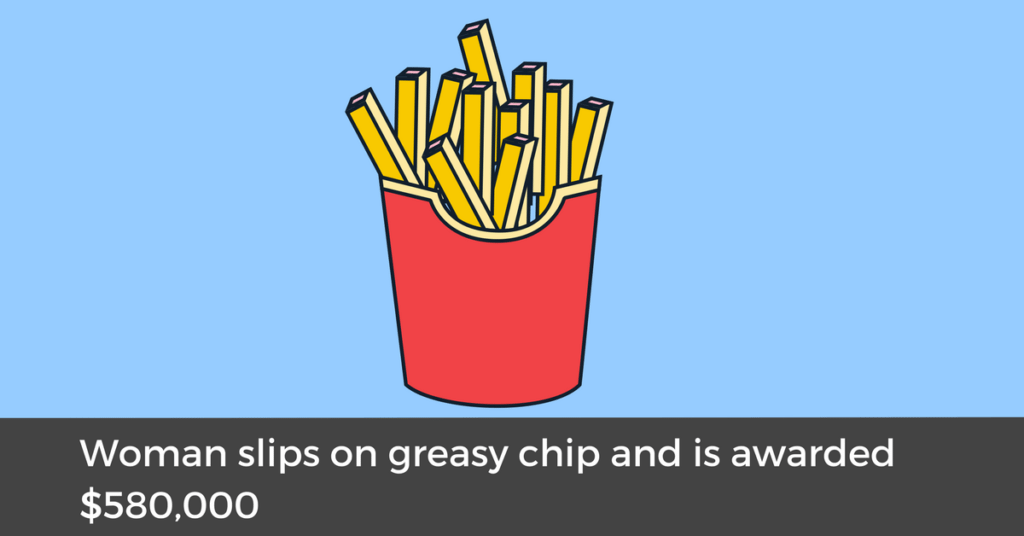The Facts
Imagine going to a supermarket with a friend and your daughter to do your shopping when you slip on a greasy hot potato chip and suffer a serious injury to your spine... …your injury completely changes every aspect of your life including your ability to care for your children. Sounds dramatic but that is the unfortunate situation that happened to Kathryn Strong while she tried to do her shopping at a Big W at a shopping centre in Taree, NSW. On 24 September 2004, Kathryn was inspecting pot plants outside the entrance to Big W. The store was under the care and control of Woolworths Limited. Being an amputee, Kathryn required the assistance of crutches. As she moved away from the plants, her right crutch landed on the greasy chip, throwing Kathryn off balance and causing her to land heavily on the floor. Kathryn suffered serious spinal injuries as a result. Kathryn brought a claim against Woolworths Limited(Strong v Woolworths Ltd [2012] HCA 5).
The Judgment
Complaint
Kathryn said the grease mark was ‘as big as a hand’ and therefore easily visible. An employee should have seen it and removed it if they had a proper system of inspection and cleaning. Woolworths acknowledged that it did not have an appropriate system in place on the day of the incident for the periodic inspection and cleaning of the sales area. However, they stated it was Kathryn’s responsibility to prove beyond doubt that the chip was on the floor for an ‘unreasonable’ amount of time and that it had caused her accident and subsequent injuries.
The District Court Case
The case was first heard before the district court who said,
"If other people could see [the grease mark] apart from the plaintiff after the event then it begs a serious question as to why it was not seen by an employee of [Woolworths] in those particular circumstances and it should have been removed by [Woolworths] … and if that had been done the [Kathryn] simply would not have come to grief. I can put it no more simply than that.
The primary judge awarded Kathryn an amount of $580,299.12
The Court of Appeal Case
Woolworths appealed this decision to the New South Wales Court of Appeal, claiming that Kathryn had failed to provide enough evidence to prove that their actions (or lack thereof) were negligent. Woolworths also believed that even if they had proper cleaning systems in place, it’s unlikely that they could have avoided all injuries. That is, even if they had someone cleaning every 15 minutes, they couldn’t guarantee a slip hazard wouldn’t present itself just minutes after and cause an injury. The Court of Appeal agreed with Woolworths, stating that even if periodical inspections and cleaning had occurred, the chip may have been left between the last inspection and the time Kathryn slipped on it. Therefore, Woolworths couldn’t be responsible for the injury and Kathryn’s case was overturned
The High Court of Australia Case
Kathryn then fought this decision in the High Court of Australia (the highest point of appeal). The decision of the Court of Appeal was called into question. The majority of the High Court found that there was no evidence to make a finding as to when the chip was dropped on the floor but they favoured a conclusion that the chip had been on the floor for longer than 15 minutes before Kathryn fell and as such, this was outside the ‘reasonable’ amount of time a hazard should be left untreated. The High Court found Woolworths were negligent. Ultimately, Kathryn was reinstated with her awarded amount of $580,000.

Don't read this unless...
You are wondering how the Courts calculate compensation, download this free 'Economic Loss Worksheet'. Discover the simple calculations that will estimate the value of your compensation claim in 10 minutes.
MCW Legal's Opinion
I completely agree with the findings of the High Court. There was no evidence to prove when the chip had been deposited and on the balance of probabilities it was found that it had been there for longer than 15 minutes. If the shopping centre had a proper system of inspection in place they would have detected the greasy chip and she would not have been injured. Without evidence to the contrary it is reasonable to conclude this.
The Consequences
This decision means that shopping centres need to have a proper cleaning system in place to detect potential slip and fall hazards. It also means that if there is a lack of evidence to prove the link between a breach in duty of care from store owner’s and an accident, a person will not fail in making a claim. This is particularly important as typically the burden of proof lies on the injured person rather than the store owner. Based on these findings it means that for future cases it can be enough for a Plaintiff to prove their case if the court can find on the balance of probabilities that the injury would not have occurred had the defendant carried out their duty of care. If you have had a slip and fall you must request to make an incident report. This is really important in establishing the details about the incident such as time of incident and who may have been rostered on to clean the area.
Written by Mitchell Herlihy | Associate

